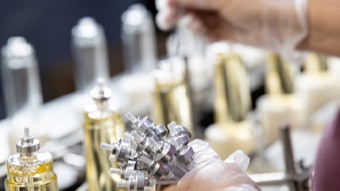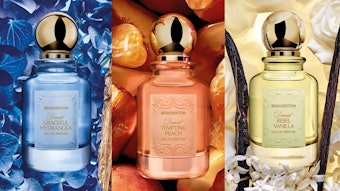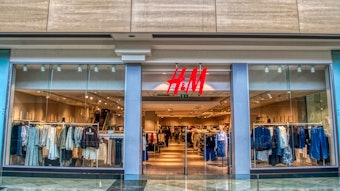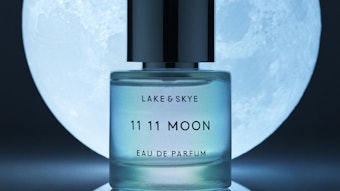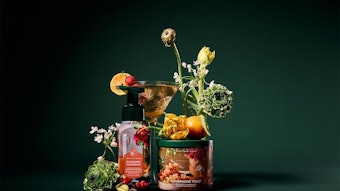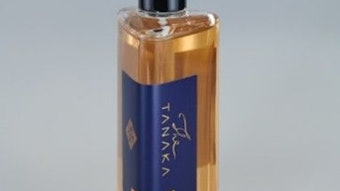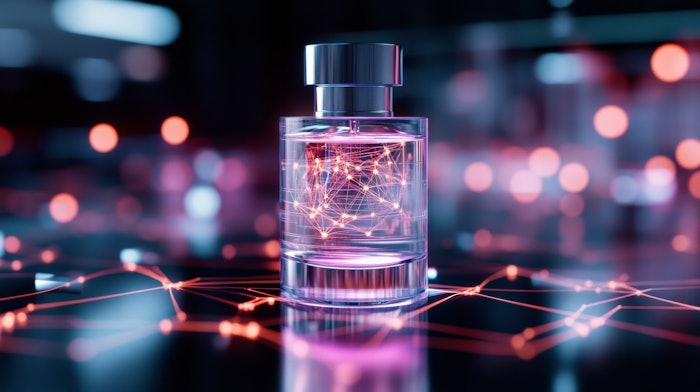
For years, the luxury perfume market has been driven by opulence and desire, often prioritizing quality products and high-end experiences over sustainable practices. Paul Houlsby, CEO and founder at The Perfume MovementCourtesy of The Perfume Movement
Paul Houlsby, CEO and founder at The Perfume MovementCourtesy of The Perfume Movement
Traditionally, this problem has stemmed from the nature of luxury brands. High-end perfumes use rare and exotic ingredients, which are all too often unsustainably harvested and sourced. These products also come in elaborate, heavy, and multi-layered packaging, which contribute significantly to waste.
But the world of luxury is changing. According to new research from The Perfume Movement and GWI, a third of luxury buyers (32%) care about the quality of the ingredients used, while 15% feel it’s important that their products are vegan and cruelty free. That means ethical sourcing is no longer just ‘fashionable’ — it’s a necessity for perfume brands looking to stay competitive.
As premium consumers push for more sustainable options, the luxury perfume industry faces a profound challenge: the need to balance the lavish demands of high-end consumers with growing ethical and sustainability concerns. This "luxury-ethical puzzle" requires serious innovation on the part of perfume brands — and that’s where artificial intelligence (AI) comes in.
AI Powers Transparency
AI technologies are opening up the once opaque luxury perfume industry, providing premium buyers with greater insight into how their perfumes are made and the impact of each and every ingredient.
As just one example, consider Firmenich’s ‘EcoCompass’ tool. Using artificial intelligence, the EcoCompass offers detailed ecological and ethical information for every ingredient used, empowering perfumers to make informed choices without compromising on quality. The EcoCompass can also calculate carbon emissions, water usage and a “green score,” helping brands develop sustainable products without having to lower their exceptional quality standards.
AI Powers New Packaging Design
Artificial intelligence and machine learning (ML) are already presenting a tremendous opportunity for transforming packaging in various sectors. By analyzing vast amounts of data, AI can consider factors such as product dimensions, fragility, and transportation requirements. It can then recommend the most sustainable packaging solutions to minimize waste and ensure product safety.
For the luxury perfume market, however, there is another factor to consider: opulence. Luxury perfumes are renowned for their sophisticated design and lavish feel. Unfortunately, most sustainable packaging simply doesn’t match up.
Take perfume bottles as just one example. Post-consumer recycled (PCR) glass — used to meet sustainable packaging demands — frequently has defects such as pitting and uneven surfaces, making it harder to create a premium feel. Similar concerns exist around outer packaging, with most luxury bottles using non-recyclable magnetic closures often combined with plastics (both non-recyclable).
To address this, luxury brands need to consider more ‘eco-luxe’ materials. Luxury biodegradable alternatives, such as Sulapac, are opening up entirely new packaging options for luxury sustainable brands. While lacking magnetic closures, Sulapac's substantial weight preserves the luxurious feel of the packaging. Therefore, by adopting eco-luxe materials with a considered approach, the industry can prove that environmental responsibility and luxury can coexist, setting a new standard for sustainable packaging. By analyzing vast amounts of data, AI can consider factors such as product dimensions, fragility, and transportation requirements.anna at Adobe Stock
By analyzing vast amounts of data, AI can consider factors such as product dimensions, fragility, and transportation requirements.anna at Adobe Stock
AI Powers Personalization
For too long, the luxury perfume market has been monopolized by a few high-end brands dictating consumer choices. The result is a monotonous sea of identical fragrances — a ‘one size fits all’ approach that hardly embodies true luxury. This paradigm must change.
Considering the unique skin chemistry of each individual, it's surprising that consumers have accepted wearing the same scents. However, more and more consumers are now waking up to the fact that true luxury lies in personalization, down to the very accords that create a unique fragrance. In fact, according to TPM’s latest research, ‘uniqueness of scent’ is the top thing UK shoppers look for when buying a fragrance. Here, AI can be a game-changer.
At The Perfume Movement, we’ve been using machine learning algorithms to analyze an extensive database of scent profiles, aligning them with individual user preferences by comparing and mapping everything from favored fragrance notes to desired intensity levels.
By leveraging this sort of AI technology, we aim to create personalized scent profiles for individual shoppers. This not only meets the demands of today's discerning consumers but also sets a new benchmark for luxury in the fragrance industry.
AI-Enhanced Artistry
Ultimately, the luxury perfume industry stands at a pivotal crossroads, driven by the demands of eco-conscious consumers and groundbreaking technological advancements. While AI can significantly ensure that ethics and luxury coexist, it is essential to recognize that the artistry and creativity of perfumers – the 'noses' – remain at the heart of luxury perfumery. AI can enhance their craft by offering data-driven insights and optimizing formulations, but the true essence of luxury fragrances still resides in the skilled craftsmanship of the perfumers and the exceptional quality of the ingredients they use.
